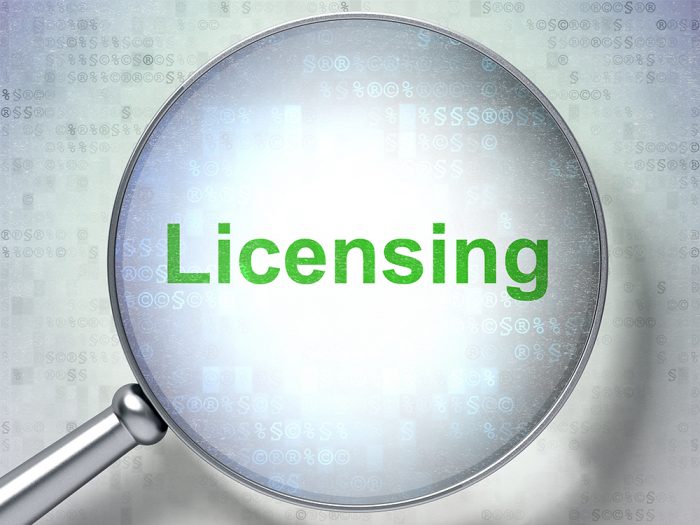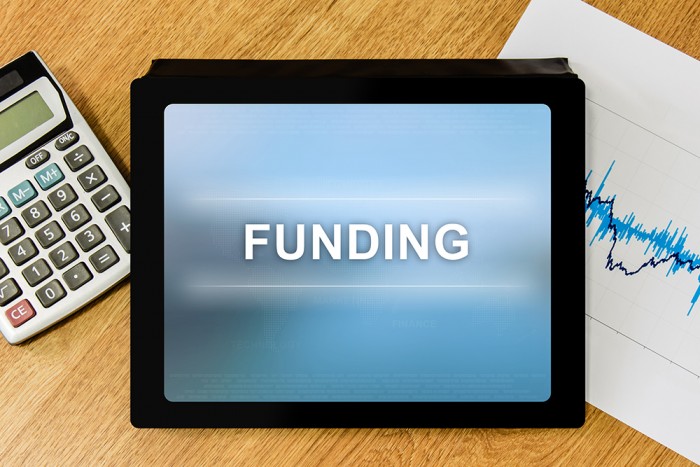A Message from RCPA Partner Warfel Construction
Warfel Construction: A Trusted Partner for Behavioral Health Providers
At Warfel Construction, we specialize in creating spaces that promote healing, care, and community. With over 113 years of experience, we have built a reputation for excellence in the construction industry, delivering high-quality projects across a wide range of sectors, including health care, education, commercial, and more. Proudly serving clients in Pennsylvania, Delaware, Maryland, Virginia, West Virginia, and surrounding areas, our team is committed to providing tailored, client-focused services that ensure the success of each project from start to finish.
A Proven Leader in Behavioral Health Projects
We are proud to have worked on over 500,000 square feet of behavioral health space, collaborating with top-tier organizations like Acadia Healthcare and Penn Medicine. Our expertise spans a variety of behavioral health settings, including inpatient and outpatient facilities, addiction treatment centers, mental health treatment environments, and rehabilitation spaces. At Warfel, we understand the unique requirements of behavioral health construction and design, and we are dedicated to providing safe, functional, and supportive spaces for both patients and providers.
Supporting Multi-location Clients & Comprehensive Facilities Management
Warfel’s capabilities extend beyond the initial build. Many of our clients have multiple locations, from group homes to larger behavioral health facilities. Our Facilities Management team offers consistent, reliable service as dedicated team leaders who understand your building and business needs. We provide tailored preventative maintenance plans and schedule routine visits to ensure prompt repairs through our dedicated software, ensuring that your spaces are always functioning optimally. Additionally, Warfel is equipped to handle renovations, many of which are managed internally, making us a one-stop solution for ongoing facility needs.
Building Relationships That Last
Our mission, Clients for Life, speaks to our commitment to providing exceptional service and support throughout every project’s lifecycle. Our team upholds fundamental values of honesty, integrity, accountability, initiative, and teamwork in every endeavor we undertake. We remain continually focused on nurturing our existing Clients for Life relationships and building new ones.
Excited to Partner with RCPA in 2025
As we embark on our partnership with the Rehabilitation and Community Providers Association (RCPA) in 2025, we are thrilled to support their mission of advancing the quality of care and services provided by Pennsylvania’s behavioral health and rehabilitation providers. By joining forces with RCPA, we look forward to connecting with their network, exchanging ideas, and contributing to the ongoing success and growth of the behavioral health community. Together, we will continue to build spaces that foster positive outcomes and better serve individuals in need of care.
We are excited for the opportunity to collaborate with RCPA and its members to improve the landscape of behavioral health services in our communities. We look forward to supporting your mission and working together to build a healthier future.
For more information, visit our website at www.warfelcc.com, or reach out directly to Colleen Lynn, Director of Client Experience, to discuss how we can partner on your next behavioral health project.
DDAP Issues Licensing Alert to Detail Process for Outpatient Telehealth-Only Licensure
The Pennsylvania Department of Drug and Alcohol Programs (DDAP) today issued Licensing Alert 08-2024 to detail the steps for SUD treatment providers to obtain a telehealth-only license from the department.
These DDAP-licensed telehealth-only providers may provide intake, evaluation, and referral, as well as outpatient or partial hospitalization services, via telehealth only without a physical plant location in Pennsylvania to individuals who are located in the commonwealth as long as the provider complies with all applicable federal, state, and local laws. Any DDAP-licensed provider can also provide some telehealth services as an option to in-person treatment. However, only a telehealth-only provider may provide 100 percent of its treatment services via telehealth.
DDAP will not require the provider to maintain a physical location in Pennsylvania. DDAP also will grant all telehealth-only providers an exception to § 709.11(b) regarding the requirement to conduct an onsite inspection for the renewal of a license as part of licensure.
Licensing Alert 08-2024 applies only to DDAP licensure. Providers that are considering applying for a telehealth-only license should consult their public and private insurance payers to confirm whether they will meet conditions for network enrollment and payment, as DDAP cannot guarantee a DDAP-licensed telehealth-only provider funding or a contract.
The full licensing alert provides additional information, including how to apply for the license.
Contact RCPA SUD Treatment Services Policy Director Jason Snyder with any questions.
Pennsylvania Healthcare Summit to Be Held January 30, 2025
RCPA Member COMHAR Board of Directors Appoints Trapeta B. Mayson Officially as CEO
 Philadelphia, PA – December 17, 2024 – COMHAR Inc. Board of Directors announced that Trapeta B. Mayson has been appointed as the new Chief Executive Office (CEO) of the agency. The Board held an Executive Session, in which they unanimously voted to remove the interim tag from Trapeta B. Mayson and make her the Chief Executive Officer, effective December 16, 2024. As an experienced human service leader, Trapeta’s career spans over 25 years across nonprofit, government, and civic sectors. Trapeta’s appointment is historic as the first woman and first African American to hold the role of CEO at COMHAR [read full release].
Philadelphia, PA – December 17, 2024 – COMHAR Inc. Board of Directors announced that Trapeta B. Mayson has been appointed as the new Chief Executive Office (CEO) of the agency. The Board held an Executive Session, in which they unanimously voted to remove the interim tag from Trapeta B. Mayson and make her the Chief Executive Officer, effective December 16, 2024. As an experienced human service leader, Trapeta’s career spans over 25 years across nonprofit, government, and civic sectors. Trapeta’s appointment is historic as the first woman and first African American to hold the role of CEO at COMHAR [read full release].
OMHSAS Issues Revised Waiver Regulations and Standards
The Department of Human Services (Department) issued bulletin OMHSAS-16-03, “Revised Procedure for Waiver of Office of Mental Health and Substance Abuse Services (OMHSAS) Program Regulations and Standards,” on April 19, 2016, to update and clarify the procedure for submitting and processing of waiver requests to OMHSAS. OMHSAS has issued OMHSAS-24-04 to further update regulatory waiver language and the process to appeal a waiver determination. The issued bulletin can be found here. OMHSAS-16-03 is obsoleted by this bulletin.
OMHSAS licenses or approves community mental health facilities and agencies and other service providers operating in the Commonwealth of Pennsylvania. In accordance with this responsibility, the Department’s authorized agents periodically inspect mental health facilities and agencies. If regulatory requirements are met, certificates of compliance or approvals are granted under Article IX of the Human Services Code (62 P.S. §§ 901 – 922) or under Article X of the Human Services Code (62 P.S. §§ 1001 – 1080).
Pursuant to applicable regulations, a facility or agency may request a time limited waiver of regulations or program standards, or a portion of regulations or program standards. All regulatory waiver requests are subject to applicable waiver of standard requirements as outlined by each chapter or bulletin. In reviewing any such waiver request, OMHSAS will consider whether the facility or agency has demonstrated that substitute measures assure the health, safety, and welfare of all individuals who reside in the facility or who receive services from the agency.
Please contact RCPA COO and Mental Health Policy Director Jim Sharp with any questions.
Discover RCPA Membership Benefits on January 15

RCPA is excited to host a Membership Benefits webinar on Wednesday, January 15, 2025, at 1:00 pm, as an opportunity for members to orient themselves with all that RCPA membership includes. This is not just for new and future members. For current members, there may be benefits associated with our membership that you may not be aware of, including targeted meetings and groups that occur throughout the year.
Registration is required; please register here to attend the webinar. Items we will review include the below and much more:
- Virtually meet the dedicated RCPA Policy Staff and RCPA lobbyists;
- Discuss the 2025 Legislative and Administrative priorities;
- Preview RCPA divisional committee and subcommittee meetings and what they offer;
- View the RCPA member-only website;
- Review exclusive yearly educational and networking events; and
- Understand the value of the National Association memberships included with RCPA membership.
Visit the RCPA member benefits web page for more information, or contact Tieanna Lloyd for benefit details.
DDAP Invests $2.5 Million to Create a Bridge to Recovery Housing
The Pennsylvania Department of Drug and Alcohol Programs (DDAP) announced the availability of $2.5 million in grant funding for community-based organizations and public health programs to help improve Pennsylvanians’ access to existing substance use disorder (SUD) recovery houses that are licensed through DDAP.
Funding for these grants is provided from opioid settlement funding that was appropriated to DDAP by the General Assembly, which was the result of a multistate investigation of opioid manufacturers and distributors spearheaded by then-Attorney General Josh Shapiro that led to settlement agreements worth billions of dollars. That money is to be invested in opioid remediation programs and initiatives.
Read the full press release here.
Please reach out to RCPA SUD Policy Director Jason Snyder with any questions.
RCPA Member Pittsburgh Mercy Announces Two Appointments to 2025 Board of Directors
PITTSBURGH (December 17, 2024) – Pittsburgh Mercy, one of the region’s largest social service nonprofit organizations serving more than 18,000 vulnerable individuals annually, a member of Trinity Health, and serving in the tradition of the Sisters of Mercy, today announced two appointments to its 2025 Board of Directors: Denise R. Hughes, director of Public Relations at UPMC Health Plan, and Paul K. Rudoy, a tax partner at H2R CPA.
Each will serve a three-year term, effective January 1, 2025, through December 31, 2027.
Rudoy served for over 20 years and Hughes served for three years on the Bethlehem Haven Board of Directors. Bethlehem Haven became part of Pittsburgh Mercy and its award-winning homeless services continuum of care in 2016.
“We are thrilled to have Denise and Paul join the Pittsburgh Mercy Board. Having a strong, deeply committed, and diverse group of trustees who have hearts for our Sisters of Mercy legacy and tradition of service to the most vulnerable is core to our mission and who we are as an organization,” stated Tony Beltran, president and CEO of Pittsburgh Mercy. “In addition to bringing their own unique talents and expertise, as legacy members of the Bethlehem Haven Board of Directors, Denise and Paul also will bring valuable perspectives to help our Board ensure the continued growth and success of our health ministry, our revered mission, and our renowned tradition of service to the most vulnerable in our community.”
 Hughes brings to the Pittsburgh Mercy Board more than 20 years of experience and expertise as an award-winning, senior-level marketing and public relations professional in nonprofit and for-profit corporate communications. She currently leads all facets of public relations strategy for UPMC Health Plan, one of the nation’s fastest growing health plans, including public and media relations, content creation, and crisis communications. Before joining UPMC Health Plan, Hughes previously held management-level marketing-communications positions at Westinghouse Electric Company and Peoples Natural Gas and served as a communications consultant to The McCreary Group.
Hughes brings to the Pittsburgh Mercy Board more than 20 years of experience and expertise as an award-winning, senior-level marketing and public relations professional in nonprofit and for-profit corporate communications. She currently leads all facets of public relations strategy for UPMC Health Plan, one of the nation’s fastest growing health plans, including public and media relations, content creation, and crisis communications. Before joining UPMC Health Plan, Hughes previously held management-level marketing-communications positions at Westinghouse Electric Company and Peoples Natural Gas and served as a communications consultant to The McCreary Group.
In addition to her service to the Pittsburgh Mercy Board and her former service on the Bethlehem Haven Board, Hughes is a board member and treasurer of the Press Club of Western Pennsylvania and a member of the Public Relations Society of America.
Hughes is the recipient of numerous business and health care marketing communications industry awards, including PR Daily’s Nonprofit PR Awards (2021, 2024), a Ragan’s PR Daily’s Social Media & Digital Awardee (2023), and a graduate of The Advanced Leadership Institute’s Emerging Leaders Program (2023).
Hughes earned a Bachelor of Science degree in communications at Carlow University, founded by the Pittsburgh Sisters of Mercy, and a Master of Science degree in leadership with a concentration in business ethics at Duquesne University.
Hughes resides in Cranberry Township, Pa.
 Rudoy, who is a certified public accountant (CPA), a personal financial specialist (PFS), and a licensed life insurance and annuities agent, has more than 30 years of experience in tax, strategic consulting, and estate and succession planning for individuals and closely held businesses. He spends most of his professional time devoted to growth strategies, succession planning, tax and investment matters, and business consulting services.
Rudoy, who is a certified public accountant (CPA), a personal financial specialist (PFS), and a licensed life insurance and annuities agent, has more than 30 years of experience in tax, strategic consulting, and estate and succession planning for individuals and closely held businesses. He spends most of his professional time devoted to growth strategies, succession planning, tax and investment matters, and business consulting services.
Rudoy earned a Bachelor of Science degree in accounting at Pennsylvania State University.
He is a member of the American Institute of Certified Public Accountants (AICPA) and the Pennsylvania Institute of Certified Public Accountants (PICPA), where he served as past president and a member of the State Taxation Committee.
In addition to his past service as treasurer and a board member on the Bethlehem Haven Board of Directors, Rudoy is also past president of the Pittsburgh Glass Center Board of Directors.
He also serves as treasurer of the Jewish Residential Foundation Board and a board member of the North American Board – MGI Association.
Rudoy and his family reside in Mt. Lebanon, Pa.
With the appointments of Hughes and Rudoy, the 2025 Pittsburgh Mercy Board of Directors and officers are:
Mark D. Gibbons, CPA (Chairperson)
Audit Partner, Assurance Service Practice Leader
Urish Popeck & Co., LLC
Tony Beltran, MBA (Secretary)
President & CEO
Pittsburgh Mercy
Rhonda N. Curry
Vice President & Chief Human Resources Officer
Gateway Health Plan
Jaime C. Dircksen
Vice President, Community Health & Well-Being
Trinity Health
Denise R. Hughes
Director of Public Relations
UPMC Health Plan
Robert A. James, JD, MBA, MHA
Chief Diversity & Strategic Growth Officer
CGT Staffing
Sister Diane Matje, RSM, RN, MSN
Pittsburgh Sisters of Mercy
Manzoor Mohideen, PhD
Director of Clinical Trial Operations, Academic Research Center for Hematology, Section of Benign Hematology, Division of Hematology-Oncology, Department of Medicine
University of Pittsburgh School of Medicine
Visala S. Muluk, MD
Director of Medicine
Pittsburgh Veteran’s Affairs Medical Center
Suresh C. Ramanathan
President & CEO
KORYAK
Paul K. Rudoy, CPA/PFS
Partner
H2R CPA
Jared S. Weiner
Chief Financial Officer, Western PA Hospital Division
UPMC
Olga Ziegler
Vice President, Revenue Program Management
Highmark Health Inc.
Editor’s note: Color headshots of Denise R. Hughes and Paul K. Rudoy accompany this release. Kindly credit: Photos courtesy of Pittsburgh Mercy.
About Pittsburgh Mercy
Pittsburgh Mercy is one of the largest community health and social service providers and employers in Southwestern Pennsylvania. We offer help – and hope – to 18,000 of our community’s most vulnerable in 60+ locations:
- People who have complex behavioral and physical health challenges.
- People who have intellectual and developmental disabilities
- People who are experiencing homelessness
- People who need wrap-around services to live safe, healthy, and well in the community.
We are the largest Integrated Community Wellness Center (ICWC) in Pennsylvania and the only one in Southwestern Pennsylvania. We are a five-time awardee of Substance Abuse & Mental Health Services Administration (SAMHSA) Certified Community Behavioral Health Center (CCBHC) expansion grants. Pittsburgh Mercy is a member of Trinity Health, serving in the tradition of the Sisters of Mercy. Our mission is to be a compassionate and transforming, healing presence within our communities. To learn more about Pittsburgh Mercy or to donate in support of its important work in the community, please visit www.pittsburghmercy.org. Follow Pittsburgh Mercy on Facebook, Instagram, LinkedIn, and X.
-###-
DDAP Invests Nearly $20 Million for Drop-in Centers
The Department of Drug and Alcohol Programs (DDAP) announced an investment of nearly $20 million for 12 Pennsylvania organizations to expand drop-in center services for individuals with substance use disorders (SUD) across Pennsylvania. Funding for these grants is provided, in part, from the portion of opioid settlement funding that was appropriated to DDAP by the General Assembly for the 2023/24 fiscal year.
All awardees have at least two years of experience providing SUD prevention, intervention, harm reduction, treatment, recovery support services, drop-in center services, and/or relevant services, and have the capacity to provide drop-in center services to individuals with opioid use disorder and other SUDs. In addition, these grants are also designed to support the delivery of services to address stimulant misuse and use disorders, including cocaine and methamphetamines. DDAP is awarding 12 grants of up to $1,875,000 each for a 29-month period from February 1, 2025 through June 30, 2027.
Read the full press release here.
Please reach out to RCPA SUD Policy Director Jason Snyder with any questions.














